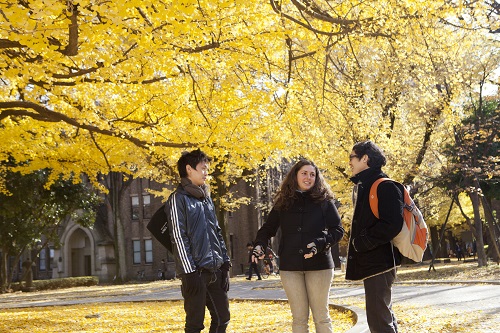Seeking Back As a result of 2000 Seasons of Slavery of Africans by Several Other Races in Ayi Kwei Armah

Ayi Kwei Armah’s TWO THOUSAND SEASONS, is ‘a deeply profound and monumental text’ projecting a pluralized communal voice [we] speaking as a result of the record of Africa, its soaked and dry seasons, from a period of time of 1 thousand yrs. The title alone represents the great arc of time covering the very long and terrible decades in African background that were traversed and endured. This pan-African epic sums up the African experience for the previous two thousand seasons minimized successfully to ‘a thousand seasons squandered wandering impressed together alien streets, a different thousand expended discovering paths to the dwelling way.’ Written in allegorical tone, it shifts from autobiography of disconnectedness and reconnectedness and real looking particulars to philosophical ponderings, prophesying a new age of hopeful regeneration. This huge span of African historical past minimized to just two hundred internet pages has specified rise to uncertainties as to its authenticity as a novel even though it interpretes record creatively.
Ayi Kwei Armah was born in the twin-harbour city of Sekondi-Takoradi in Western Ghana in 1939 to Fante-talking moms and dads. On his father’s aspect, he hails from a royal relatives in the Ga tribe. His secondary education was at the prestigious Achimota College. In 1959 he proceeded on a scholarship to the GROTON School in Massachusetts. Future at Harvard University he gained a diploma in sociology. He moved to Algeria to function as a translator for the magazine Revolution Africaine. Back again in Ghana, he got engaged at the Ghana Television as a scriptwriter and later taught English at the Navarongo school. He became editor of JEUNE AFRIQUE journal in Paris from 1967-8. He then proceeded to Columbia University exactly where he obtained his M.F.A. in inventive crafting. In the 1970’s he taught at the School of Nationwide Training, Chang’omgo, Tanzania and at the Nationwide College of Lesotho. He lived in Dakar, Senegal from the 1980’s and taught at Amherst and University of Wisconsin at Madison.
Armah’s writing vocation started in the 1960’s. He printed poems and shorter stories in the Ghanaian journal OKYEAME, and in HARPER’S, THE ATLANTIC Month to month, and NEW AFRICAN. Then in 1968 he posted his first novel THE Attractive Ones ARE NOT Nonetheless BORN which emerged as a contemporary African classic.
TWO THOUSAND SEASONS is a novel of loss and redemption. ‘Woe the race, way too generous in the offering of alone, that finds a highway not of regeneration but a highway to its individual extinction,’ he warns and goes on to trace the paths taken: the several untrue ones and the correct kinds.
The location of origin, the home, is an unspecified sub-saharan African place. The story truly starts with the coming of the predators who bring in ruin. To start with, we have the Arabs, then the Europeans – ‘White all. And usually the weak and complicit locals retain demonstrating from the first a ‘fantastic excellent […]: fidelity to those people who spat on them,’ thus assisting to convey ruin from within.
The initially predators surface as beggars. Their pitiful overall look is deceptive. Cunningly and patiently, they took maintain utilizing their religion to encourage and keep sway in excess of the weak, turning them from their fellow Africans. The predators cut down them ‘to beasts’ by starving their minds with their overseas faith and ‘indulging their crassest bodily desires. These beasts- the perfidious askaris, who maintain the locals subjugated in the course of the countless numbers of seasons – are pathetic, but although the others contemptuously get in touch with them ‘white desert-men’s dogs’ they come to be the keen and typically pretty efficient applications of the predators.
Armah consequently keeps displaying the African to have contributed to the demise of his individual lifestyle by being ever so eager to offer with the [white] devil and by selling out to his fellow gentleman.
The ‘white man from the desert’ patiently helps make inroads, returning stronger and wiser just about every time. The locals do not know how to protect on their own:
This time once more the predators arrived with force – to split our bodies. This time
they came with guile also – a religion to smash the feeblest minds among us,
then convert them into equipment against us all. The white males from the desert had
produced a discovery valuable to predators and destroyers: the seize of the head
and the entire body both equally is a slavery significantly more long lasting significantly more protected than the
conquest of bodies alone.’
Revolts of terrific ferocity were being widespread. The predators’ gluttony prospects to their very own
undoing – still that undone is under no circumstances enough. Achievements is limited. The subsequent wave of predators are seemingly generally at the completely ready. But the regional in no way seem to be to get any wiser.
Management is as a great deal a problem in this textual content as it is in Bound TO VIOLENCE. The rulers for whom Armah reserves practically nothing but contempt are the worst. ‘The quietest king, the gentlest leader of the mystified, is criminal outside of the workout of any compassion.’ This retains completely real for his prime illustration, the greedy idiot, Koranche.
The whites, coming following the Arabs, are not simply predators but destroyers – the armed colonial European powers. And Armah is specified: ‘There is almost nothing white adult males will not do to fulfill their greed’-or: ‘Monstrous is the greed of the white destroyers, infinite their avarice.’ The good thing is for them then, there is minimal Koranche and his flatterers won’t do to fulfill their greed possibly:
Amid the white destroyers there was no respect for everything we could say.
They had come established to see absolutely nothing, to hear to no a single, bent only on the
fulfillment of their greed, of which we experienced ample information. But the king was
infatuated with the white destroyers and would not heed the people’s will, as
quick in its expression as it was distinct to inform the white adult males to go.
Amongst the destroyers are missionaries, too, with a diverse poisonous religion.
Intelligent Isanus warns time and time again of the potential risks ahead but no one listens.
‘Have we neglected the bring about of our extensive wandering? Did we not learn in the vicinity of the desert how monks and warriors are twin destroyers, the priest attacking the target thoughts, the warrior breaking bodies even now inhabited by resisting wills?’ ‘All sincere individuals who have arrive to us have come because they sought to do by themselves great among the us, as aspect of our persons, and they mentioned so. These white guys, they do not want to be part of us. But below they have occur claiming they have crossed the sea from wherever it is they arrive from just to do us great. They are pretenders. They are liars. We have asked them for very little. We should really not have permit them arrive amongst us. They have no need to are living with us. They will dwell from us’ [p153-154]
”The whites intend a lasting oppression of us’…He told us in the city Poano he experienced read a white gentleman, a missionary whose white greed was so subtle it seemed forward to the ending of the open trade of human beings, to the commencing of a subtler destruction. This white missionary thought there would be much better profit in trying to keep the victims of the trade right here on our land, having the kings and courtiers use them to mine and mature regardless of what the whites will need, then giving the merchandise to the white destroyers… Isanus mentioned this white missionary would be active getting strategies to eternalize our slavery via using our leaders in a cleverer type of oppression more durable to see as slavery, slavery disguised as independence itself. The whites intend a very long oppression of us.” [p163]
[The narrator] ‘Our selections in the life we were ready to start out would not be quite a few: we could in shape into existing preparations, abandoning our desires of that superior globe, goals of our way, the way. Or we could try out to know the way. That would suggest fighting against the white road, the white people’s program for destroying our way, the way.
We listened to Isanus. We did not know that the expertise contained in his text was speedy, urgent know-how. We thought we would have time to take up it, time to regulate to its which means. We experienced none.
Isanus experimented with to alert us but we misjudged him. We assumed there was a length in between his words and fact, a area for us to manoeuvre in. There was none….He warned us to continue to be totally apparent of the new preparations, the positions which experienced now come to be mere employment for parasites.’
[Isanusi] ‘The way issues have turn into, if you do not want to be parasites you have to have time in which to assume of what else there is to be. And higher than time, courage to do what you conclude you should to do which is a lot more tricky….’
[Isanusi] ‘If you understood who you have been, you would acknowledge no invites from [B]lack adult males who contact white people today pals. Bloody interests feed these types of unnatural friendships. You will are living to be their victim.’ [P164-166]
Later on, after they have been sold into slavery by their king and escaped ‘his phrases arrived back an echo to what we had lived to know.’ Last but not least, they are decided not to look into the earlier, or ‘return to household blasted with triumphant whiteness.’ They would ‘seek the essential starting to destruction’s destruction.’
Isanusi viewing how lengthy the street ahead is, warns that this era ‘would not outlive the white blight, that only the groundwork could be loud, the beginnings undertaken. Even with the treachery of chiefs and leaders, of the greed of parasites that experienced pushed us so significantly into ‘the whiteness of death’ there is some hope for the foreseeable future – nevertheless not an rapid 1, ,
Inspite of unspeakable horrors, oppression and betrayals as in Sure TO VIOLENCE, this novel in contrast to the latter is a tale of the triumph of the human spirit and the will. Enslaved, there is a daring escape from the ship adopted by the rescue of the other individuals. The white predators are hence beaten at their own activity. Arms stolen from them are then turned from them. Inspite of continuing treachery, successes alongside with little movements arise together the way. Significantly of this is substantially connected. It is a stirring frequently horrifying, normally touching go through.
The shared norms, values and ancestral track record reposed in Certain TO VIOLENCE are retained in TWO THOUSAND SEASONS. This could be ideal examined in the model of the opening paragraphs of the very first chapter with its preponderant communal’we’.
We are not a people of yesterday. Do they request how lots of one seasons have
flowed from our beginnings until now? We shall level them on the appropriate
beginnings right up until now? We shall place them on the suitable commencing of their counting. On a apparent night time when the light of the moon has blighted the historic girl and her seven kids, on this sort of a night time explain to them to go alone into the planet. There have them count 1st the a person, then the seven, and right after the seven all the other stars visible in their eyes by yourself.
Soon after that beginning, they will be completely ready for the sand. Permit them count it grain
from single grain.
And soon after they have attained the finish of that counting we shall not inquire them
to quantity the raindrops in the ocean. But with the knowledge of the aftermath have them talk to us all over again how quite a few seasons have flowed by because our individuals had been
unborn.
As Ngara states, the preponderance of the initially particular person plural ‘we’ all over the tale points the narrator out as ‘a collective voice in the correct custom of African communalism.’ Armah’s narrator, talking for the team, exemplifies one particular of the book’s significant messages – the truism that toughness, survival and even natural beauty are to be uncovered in togetherness. We hence have the continual emphasis on their widespread qualifications during the textual content by suggests of this kind of phrases as ‘our people’, ‘our origins’ and ‘our history’. With the to start with man or woman, the writer quickly creates the illusion of a speaker actually addressing a listener – in this scenario a reader, as posits Mensah. But then we also get the impression of a teller involving an audience in his narration as he retains asking: ‘Do they inquire how numerous one seasons we have flowed from our beginnings till now?’ This also provides the narrator a more than normal diploma of immediacy of a immediate address of a dwelling voice.
This impact is enhanced by the rhetorical use of repetition in ‘On a very clear night time when the gentle of the moon has blighted the historic woman and her 7 small children, on this kind of a night tell them.’ The most recurrent repetition is that of ‘the way’, ‘our way’, and ‘reciprocity’. This sometimes lends the tale some philosophical twist as could be sensed in: ‘Its farthest that means, that this means massive plenty of to hold all other meanings, was the this means of the way itself: the contact to reciprocity in a entire world wiped clear of destroyers harmless once again of predators. What was the meaning of the way? Its apparent that means was destruction’s destruction. It really is closest which means: the search for paths to that needed starting.’
Right here, ‘meaning’ has been typically recurring. But we also detect the use of yet another rhetorical system, that of rhetorical questions as exemplified under:
Which shall we now select to try to remember of the a lot of idiocies our tolerance
has supported? Shall we don’t forget Ziblin the heavy a single, heavy not like a dwelling elephant but like infirm mud, he who wished every single new bride’s hymen as his
boasting prize, but turned the tears of women of all ages into laughter when they found
substantial would-be king had not the blood in him for coming into the widest open up
doorway? Or shallow remembrance be of Jezebo, he who for the solace of his
shriveled soul preferred all coming into his existence crawling on their knees. Or of Bulukutu, he who gave himself a thousand grandiose, vacant names of praise
died forgotten other than in the recollections of laughing rememberers?
As a result of this gadget we are specified the experience of a communal working experience with the narrator involving the viewers by inquiring them thoughts. But in truth the issues by themselves are disguised statements for they in fact do what they ask to be accomplished.
The recourse to proverbs at a time when the want for consciousness is remaining emphasised is significant:
Of unconnected consciousness is there far more to say outside of the distinct recognition this is destruction’s keenest resource towards the soul? That the remaining hand
need to be retained ignorant of what its appropriate twin is produced to do… That the coronary heart detached need to conquer no speedier even when limbs familiar to it are moved to heinous
acts. That our remaining eye really should be established to see from its twin not with it… That the sight of the eye need to be unconnected, slash off from the mind’s embracing consciousness – what is that but death’s white in delirious triumph?
The knowledge of the sayings is warped to shock the viewers into recognizing the destructiveness of unconnected consciousness.
Armah sustains the influence of recreating in producing the speaking voice through the perform therefore creating it a person of the most oral performs at any time published. It is not just any speaking voice. It is official and dignified and invested with authority. This is in the tone, the contemptuous tone in which the narrator discusses thoughts about the antiquity of Africans. ‘Just as only a fool would endeavour to rely the stars or the grains of sand on the shore or the raindrops in the ocean, so only a idiot would wish to depend the years in buy to arrive at the immemorial epoch when the African men and women originated ,’ It is a tone suggestive of wisdom as perfectly as impatience with the folly of Europe’s methods. This passage also exemplifies another machine Armah uses to spend the narrator with authority which is the deep information displayed about African things. The reader is all through the novel overcome by the narrator’s encyclopaedic awareness of Africa’s rivers, trees, peoples, names and its heritage consequently recreating the voice of the court docket historian, the griot or at the very least sagacious grandparents telling the younger of the village tales of yore. AS Robert Fraser observes: ‘where just before we searched in vain for an occasion of recognizable authorial intervention, the author right here can take upon himself a position of obtrusive commentator from the pretty initial sentence.
BIBLIOGRAPHY
Fraser, Robert, THE NOVELS OF AYI KWEI ARMAH, London, Heinemann,
1980
Ngara, Emmanuel, STYLISTIC CRITICISM AND THE AFRICAN NOVEL,
London, Heinemann, 1982
Palmer, Eustace, THE Expansion OF THE AFRICAN NOVEL, London,
Heinemann, 1979
Lindfors, Bernth, ‘Armah’s histories’ in AFRICAN LITERATURE Now no 11,
1980
Mensah, A.N., ‘Style and Reason in Armah’s TWO THOUSAND SEASONS’ in
AFRICAN LITERATURE These days no 17 ed. Eldred Jones
Omotoso, Kole, ‘Trans-Saharan Views mutually unfavorable portraits’ in AFRICAN
LITERATURE Nowadays no 14, 1984
Wright, Derek, ‘ Ayi Kwei Armah’s TWO THOUSAND SEASONS: A Dissent’







